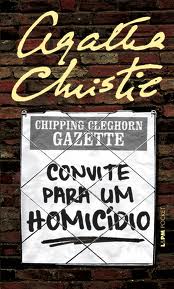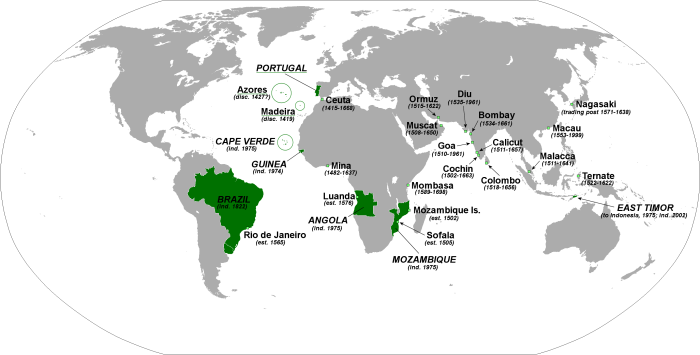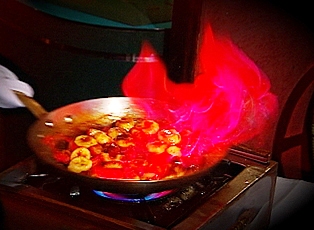
Translation: Gratitude is the memory of the heart.
Happy Thanksgiving

Translation: Gratitude is the memory of the heart.
Happy Thanksgiving
Year two gave me time to observe and practice the Portuguese language. One of the things that helped me with the language was reading Agatha Christie’s mysteries in Portuguese. It was especially helpful with the idioms.

There was a lot to learn about this country that had existed for hundreds of years, and I enjoyed every minute of learning. At one time, Portugal had a world-wide empire. The map shows all of the places the Portuguese claimed.

In the 1970’s, Angola and Mozambique both fought a war for independence from Portugal and each followed it up with civil wars. You can read the details if you are interested here and here. One of the outcomes was that Portugal was flooded by immigrants from both of those countries. In the beginning, they were white immigrants, but as thousands of people were being killed, the black Africans also flooded Portugal. Many of them built a place to live out of wood and metal roofing. I was fascinated by their ability to make do and survive under such adverse conditions.

Watching the news on Portuguese television was a revelation, too. When you are accustomed to United States-centric news, it gives you a new perspective. The Portuguese news reporters also reported news from the US, but not usually in depth. When it came to the World Series, though, Harry had to buy copies of the International Herald Tribune. That year, 1980, was looking good for the Phillies as they played game six against the Kansas City Royals at Veterans Stadium.

There’s nothing quite as disturbing as a jangling phone ringing at 2 a.m. It is downright worrisome. Harry rolled out of bed, picked up the phone and said, “Está?” Then he started talking in English with a side of jubilee. His dad had called as soon as the game was over to let Harry know that the Phillies were the world champions. Of course, the next night we had a post World Series party.
Have you ever been awakened in the middle of the night?

Translation: It is better to have a little than to have nothing.
Do you think this is relevant to people in this time in history? Would you change the proverb in any way?
Today I am posting the link to the Lisbon Live Webcam. It broadcasts panoramic view of many of the places I’ve featured on this blog. These include the monument in the Baixa to the Marques de Pombal, the April 25th Bridge and many other places in the city. Try coming back several times to get a rounded picture. Lisbon is six hours ahead of EST, so if you check it about 6 p.m. Lisbon time, you will see the city at night.
Did you see anything that looked interesting? What was it?

And suddenly, or so it seemed, the year had rolled around to June 30th once again. It had been two eventful years from the time I visited Portugal until our first anniversary. I was comfortably settled with the culture, and could speak well enough to go on with, but my ears…well, the Portuguese words ran past my ears much more quickly than my ears were able to catch them.
Harry, in spite of the landlady’s consternation, had painted the living room. We went to the store to pick a color. I was looking for a very pale peach to lighten up the room. Someone should have warned me. What looked like pale peach on the paint chip became pumpkin pudding on the wall. We lived with it. It made a great conversation starter.
I had become a competent food shopper by listening to and watching the Portuguese women shop. There was fresh produce all year ’round, but winter time was the time for broccoli, cauliflower, cabbage – and Harry didn’t care much for them. We got through it with a little cheese sauce poured over them and sometimes a hollandaise sauce.
Soccer barged into my life. I learned that Portuguese boys often learned to kick a soccer ball (futebol in Portuguese) before they could walk. And the aficionados of soccer are even more passionate about the sport than baseball fans in America are about going out to the ball game. I did find it much easier to watch than baseball.
My formal language lessons ended, but learning to speak Portuguese would be an ongoing project. Writing in Portuguese is fraught with its own pitfalls. Written Portuguese is much more formally expressed than in conversation, and requires great care in the writing. Another challenge was that two people in our organization were raised in Brazil. Brazilian Portuguese is less formal. Is it any wonder that people who didn’t know me thought I was Brazilian?
And, of course, Harry and I continued to hold a hope in our hearts that our dream would come to pass. We were ready, but the dream was not. We still had Sammi cat and I wasn’t lonely during the day.
Harry took me to a seafood restaurant in Lisbon to celebrate the first anniversary of our wedding. He had been saving up for quite some time so he could give me a lobster dinner. It was delicious, and we finished the meal with a performance of Cherries Jubilee.

The summer and the winter were the first year. And President Jimmy Carter was finishing his last year in office.
Have you ever eaten a flaming dessert? What do you think you would like about Portugal?
 We did not plant churches. Our ministry was to support local churches; we held evangelistic meetings, taught teen Bible studies and did summer camp for teens. We also had a musical ensemble.
We did not plant churches. Our ministry was to support local churches; we held evangelistic meetings, taught teen Bible studies and did summer camp for teens. We also had a musical ensemble.
Occasionally, Harry and I borrowed transportation and set out to participate in some of the events, or just to meet with and visit with our Portuguese colleagues. There is a map with the with a mileage counter on the right for your convenience as you follow us around Portugal. All trips began from our home near Lisbon. (For the sake of clarity, Lisbon is approximately on the same parallel as New York City but with a milder climate due to the Jet Stream.)
One late fall trip took us all the way to Porto. It isn’t the most northern town, but it is one of the oldest. The River Douro runs through the town, and on one visit there I saw women doing their laundry in the river. Other areas had wash-a-terias where women took their laundry and washed it in concrete washtubs.

this time, we were visiting the Centro Bíblical, another group that had summer camp for kids. When we arrived we were greeted warmly as only the Portuguese can greet. We were further north, and the little Portuguese language that I had learned did not sound exactly the way that it had in Lisbon. (Some of the Portuguese in the north sounds closer to Spanish.) But I did not need any translation for the love with which they greeted me. Harry was a favorite, and everyone wanted to meet his new wife.
It was much colder in Porto area than it was in Lisbon, and I was glad that Harry had given me a heads up on bringing warm clothes. We sat in the kitchen as the sun disappeared over the horizon and the cold invaded. They had a brazier on the floor to heat that room. Harry was applied to frequently for his mad translating skills.
At bedtime, I was escorted upstairs to where the campers bunked in the summer. I began to wish that I had brought more warm clothes; it was cold in there. I was in the girls’ dormitory and Harry was over in the boys’ dorm. The bunks were short and narrow, but there was no fear of falling out of bed. The ladies came and lovingly tucked me in by wrapping numerous woolen blankets around me. I couldn’t move.
In the morning, I wondered what was next when one of the ladies came and with words and gestures signified that I should get up and get my clothes on. I did and went downstairs. Everyone crowded around me and kept asking a question I did not understand: Dormiste bem? Harry was not in sight. Finally he showed up and told me they wanted to know if I had slept well. That was the beginning of understanding that Portuguese manners are more formal than those of my homeland. Eventually, I discovered that the formal manners also make it easier to have healthy intimacy in friendships.
On that same trip, we visited a Portuguese family who lived on the Atlantic coast. I don’t believe I ever met an inhospitable Portuguese (though I suppose there may have been some). The family we visited was so happy that we were coming that they prepared a special delicacy for us. They had gathered a large amount of sea snails, then seasoned and cooked them just for us. My word, I hoped I could get them down. All I could think of was the story about the missionary who was invited to dinner in an African village where he was fed some sort of white grubs.
They handed us a plate and a toothpick to pick the snails out of the shell. I looked at them for a minute, and watched others eat. Then I took the plunge. To my delight, they were delicious and eminently edible.

Have you ever eaten snails? How do you feel about formal manners?

Each year, in the month of June, Portuguese cities and villages enjoy a two-week long “block” party. The parties go on long into the night and feature processions, music, singing, dancing and grilled sardines. In contrast to Carnaval, these two weeks are dedicated by the Catholic Church (remember that a large percentage of Portuguese are Catholic) to three beloved saints; namely Saint Anthony of Padua, Saint John, the Baptist and Saint Peter, the Fisherman.

Saint Anthony was born in Portugal, and became a Franciscan monk. He traveled to Italy and made his home in Padua. St. Anthony is the saint of lost things (including people and souls), and and also of newly weds (perhaps because newly weds are lost – maybe because they are lost to everyone but their spouse? – I don’t know. He was named a Doctor of the Church for his ability to clearly teach the Bible. He is often portrayed with a the Christ Child, who is believed to have appeared to St. Anthony. His feast day is June 13, the day he died. St. Anthony is the patron saint of Lisbon as well as of other towns.

John the Baptist’s feast day is recognized on June 24th, his birthday. (Note: most saints are recognized on the day they died. Only John the Baptist and Mary, the mother of Jesus, are recognized on their assumed birthdays.) It is close to the summer solstice and you may notice many church festivals coincided with pagan customs. In addition to being the forerunner of Christ, he is considered the patron saint of tailors (he made his own clothing in the desert) and of shepherds (he called Jesus the Lamb of God).
 On June 29th, the Portuguese celebrate the feast day of St. Peter, the Fisherman. Being a sea-faring folk and fishermenl, they go all out for this saint with music and dancing. He is considered patron saint to a long list of people including bakers and the the Universal Church. (If you want a full list, you can go here. It’s interesting to read.) When St. Peter was condemned to be crucified, legend tells us that he asked to be crucified upside down because he was not worthy to be crucified in the same manner as Jesus.
On June 29th, the Portuguese celebrate the feast day of St. Peter, the Fisherman. Being a sea-faring folk and fishermenl, they go all out for this saint with music and dancing. He is considered patron saint to a long list of people including bakers and the the Universal Church. (If you want a full list, you can go here. It’s interesting to read.) When St. Peter was condemned to be crucified, legend tells us that he asked to be crucified upside down because he was not worthy to be crucified in the same manner as Jesus.
Okay, readers, why do you think that St. Peter is so popular? Would you want to have a chat with any of these saints?

The first known settlers in Portugal were groups of wandering Celts. They brought their pagan religions and festivals with them. When the Romans arrived around 210 BC, they called it Lusitania. Christianity arrived in what would eventually become Portugal around the end of the first century A.D. The people of Lusitania had their own religion. When they embraced Christianity, they added it to a number of their existing festivals.
Although most of the Portuguese festivals revolve around honoring the saints, Carnaval has roots mostly in the pagan religions of the settlers along with some Christian traditions. Those early roots included fertility rituals for good harvests.

There is a lot of tomfoolery going on as well as parades and parties. The idea behind it is for people to get the urge to sin out of their system. If you are interested in reading more, you can go here. It is the Portuguese version of Nola’s Mardi Gras, celebrated over the three days before Lent (and penitence) kick in.
That first year – well, it was interesting. Many Portuguese enjoy watching Rio’s Carnaval on the TV. I have to admit that in many ways I lived a fairly sheltered life growing up in Fundamentalism. That first year of watching select portions of Rio’s televised (and uninhibited) parades was quite a revelation – in more ways than one. The Portuguese parades were more conservative, possibly due to the significantly cooler temperatures.
So, are you ready to join the party in March of 2014?